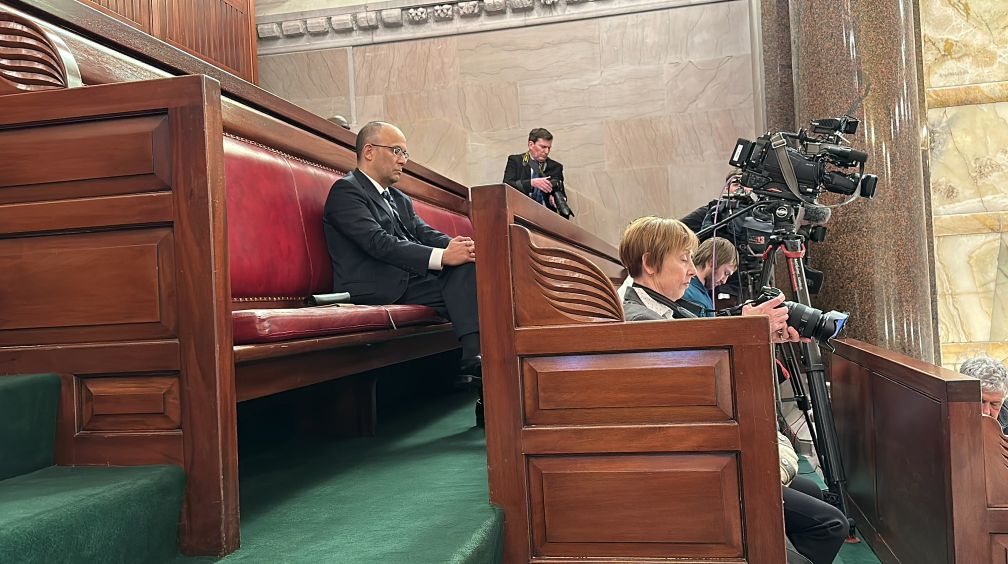Hector LaSalle watched by himself from the gallery in the New York state Senate as lawmakers deliberated for about an hour whether he should become chief judge.
In the end, the first Court of Appeals chief judge nominee to lose two state Senate votes over the course of a month left without the job. He showed little emotion over the 20-39 vote sinking his candidacy. But future judicial candidates, like LaSalle, may face a similarly tough environment in the state Senate.
Court of Appeals nominations and confirmations were once pro-forma events in Albany that elicited little interest outside of the state's often clubby legal circles. But Democratic lawmakers, as well as labor and progressive advocates, have pointed to a shift in viewpoint on the nominations.
A conservative-led U.S. Supreme Court has placed a bigger focus on rulings that have major effects on blue states, from gun laws to abortion rights.
"Everybody is paying attention, riveted, to who is sitting in these seats, who's sitting the in Judiciary, who is making these decisions," Senate Majority Leader Andrea Stewart-Cousins said on Wednesday shortly after the vote.
More broadly, the electorate has also become far more polarized in the last decade. While control of the two houses of the U.S. Congress is on a knife's edge, Democrats hold supermajorities over Republicans in the state Senate And Assembly.
Stewart-Cousins pointed to relative apathy a decade ago that enabled a bloc of breakaway Democrats to align with Republicans in the state Senate and hold power.
"Nobody cared until Donald Trump was elected. Then people look at state government and said, 'oh my God, what's happening?" she said.
With those votes, Democrats have been able to muscle through tax increases on rich New Yorkers in order to boost education funding. They are also hoping to once again increase New York's minimum wage this year to $21.25.
Opposition to LaSalle was fueled by labor unions and progressive advocates who have taken issue with his prior rulings. LaSalle has said the criticism has taken his work out of context.
Nevertheless, Stewart-Cousins promised more scrutiny for future judicial candidates.
"Absolutely," she said. "All of these things matter. None of us take these things for granted."
Republicans, meanwhile, plan to continue to argue the process will still matter. Senate Minority Leader Robert Ortt told reporters a lawsuit meant to trigger a full floor vote will move forward and that it's not moot with the Wednesday vote rejecting LaSalle.
Ortt insisted New Yorkers have a stake in that outcome to ensure all lawmakers have a chance to cast a vote for a judicial candidate.
"This is the New York version of the U.S. Supreme Court," he said. "So you're damn right my conference should get a say on who sits on that court."
Democrats have asserted they want to change the composition of the high court in New York state to better reflect New York's political values. Ortt called this "widening the strike zone" at the Court of Appeals for an already heavily Democratic state.
And some Republicans want to go further. Sen. Jim Tedisco raised the possibility of a constitutional amendment to overhaul how judges are nominated in New York. Such a move seems unlikely given Democratic power in Albany.
"We can do a constitutional piece of legislation for a change, vote on it twice, and have it go to the public," he said. "I think they'd want us to vote on this."
Gov. Kathy Hochul signaled she plans to move forward with a new nominee. Democrats, meanwhile, indicated they'd rather be focusing on the pending state budget due at the end of March.
"I think the hope that we can move on and work on the $227 billion budget we need to negotiate over the next six weeks," said Sen. Brad Hoylman-Sigal.


